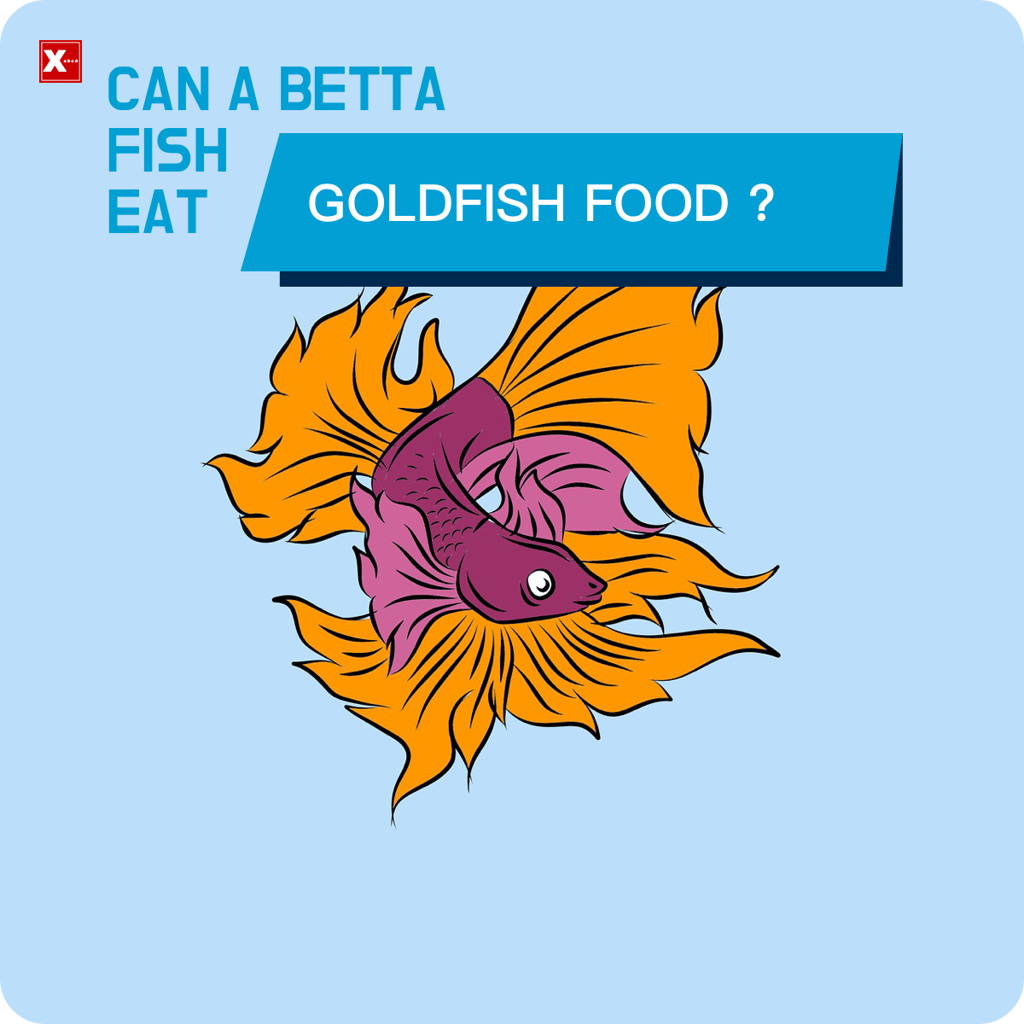Yes, betta fish can technically eat goldfish food, but it is not recommended. Betta fish have specific dietary needs that are different from goldfish. This article will explore whether betta fish can eat goldfish food, the potential risks involved, and provide alternative feeding options to ensure the optimal health.
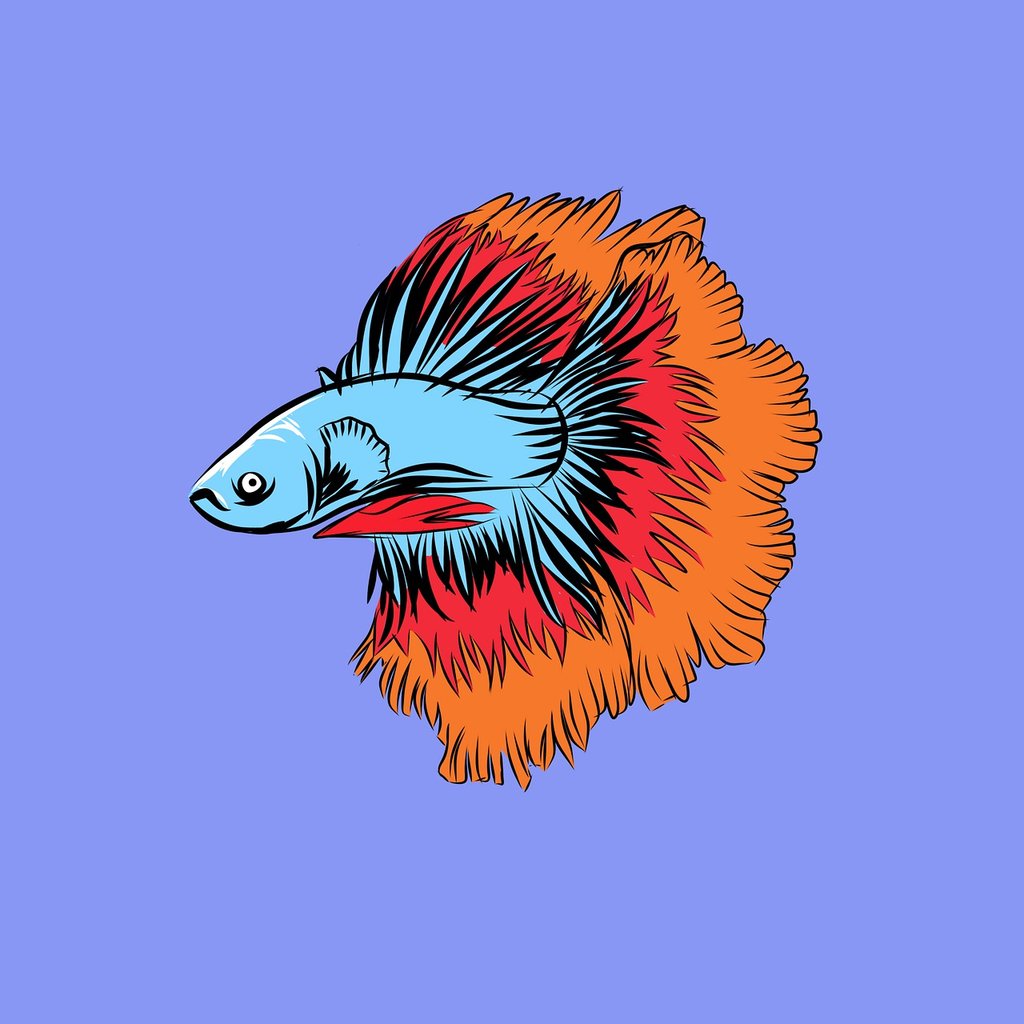
Understanding the Diet of Betta Fish
Feeding a betta fish may seem straightforward, but their nutritional needs are unique compared to other fish. One common question that arises is whether a betta fish can eat goldfish food. This article provides a comprehensive guide to help you understand the feeding habits of betta fish, explore the compatibility of goldfish food with their diet, highlight the risks involved, and offer alternative feeding options for these vibrant and beautiful aquatic creatures. Additionally, it provides step-by-step instructions on how to transition betta fish to a new diet and emphasizes the importance of maintaining a healthy feeding routine for their overall well-being.
Proper nutrition is essential for the health and well-being of betta fish. These vibrant and majestic creatures have a unique diet that requires specific nutrients to thrive. Understanding their natural feeding habits can help ensure that they receive the proper nutrition.
Betta fish are carnivorous by nature and primarily eat small insects and larvae in the wild. Their diet consists mainly of protein-rich foods, such as bloodworms, brine shrimp, and daphnia. These food sources provide essential nutrients like protein, vitamins, and minerals that are vital for their growth and overall health.
While betta fish have specific dietary requirements, it is common for fish owners to wonder if they can feed their betta fish goldfish food. Goldfish food is readily available and often used as a staple diet for other types of fish. Let's explore whether it is safe to feed betta fish goldfish food.
| Can Betta Fish Eat Goldfish Food? | Yes | No |
|---|---|---|
| Goldfish Food Nutritional Value | Contains essential nutrients | Lacks specific nutrients required by betta fish |
| Digestibility | Easily digestible by betta fish | May cause digestive issues in betta fish |
| Health Impact | May be suitable as an occasional treat | Prolonged feeding can lead to malnutrition |
While betta fish can technically eat goldfish food, it is not recommended as their primary diet. The nutritional value of goldfish food differs from the specific nutrients required by betta fish. Goldfish food typically lacks the high protein content that bettas need for optimal health, and prolonged feeding can lead to malnutrition and other health issues.
Feeding betta fish goldfish food can also impact their digestive system. While goldfish food is generally easily digestible, betta fish have a more delicate digestive system. Regular consumption of goldfish food can lead to digestive issues such as bloating, constipation, and even swim bladder problems.
Fortunately, there are alternative feeding options available for betta fish. These options can provide the necessary nutrients to keep your betta fish healthy and thriving. Some suitable alternatives include betta pellets specifically formulated for betta fish, freeze-dried or frozen bloodworms, brine shrimp, and high-quality fish flakes that are rich in protein.
To transition your betta fish to a new diet, it is important to do so gradually. Sudden changes in diet can cause stress and digestive problems. Begin by introducing small amounts of the new food alongside their usual diet. Slowly increase the amount of new food and reduce the old food over a period of several weeks until your betta fish is solely consuming the new diet.
Maintaining a healthy diet for betta fish goes beyond just providing the right food. It also involves establishing a regular feeding schedule and monitoring portion sizes. Overfeeding can lead to obesity and other health complications, while underfeeding can result in malnutrition. It is recommended to feed betta fish small portions two to three times a day, removing any uneaten food within a few minutes to maintain water quality.
In conclusion, while betta fish technically can eat goldfish food, it is not recommended as their primary diet due to differences in nutritional needs and potential digestive issues. Understanding the proper diet for betta fish and providing suitable alternatives will ensure their overall health and well-being. By following a step-by-step transition process and maintaining a regular feeding schedule, you can provide your betta fish with the nutrition they need to thrive.
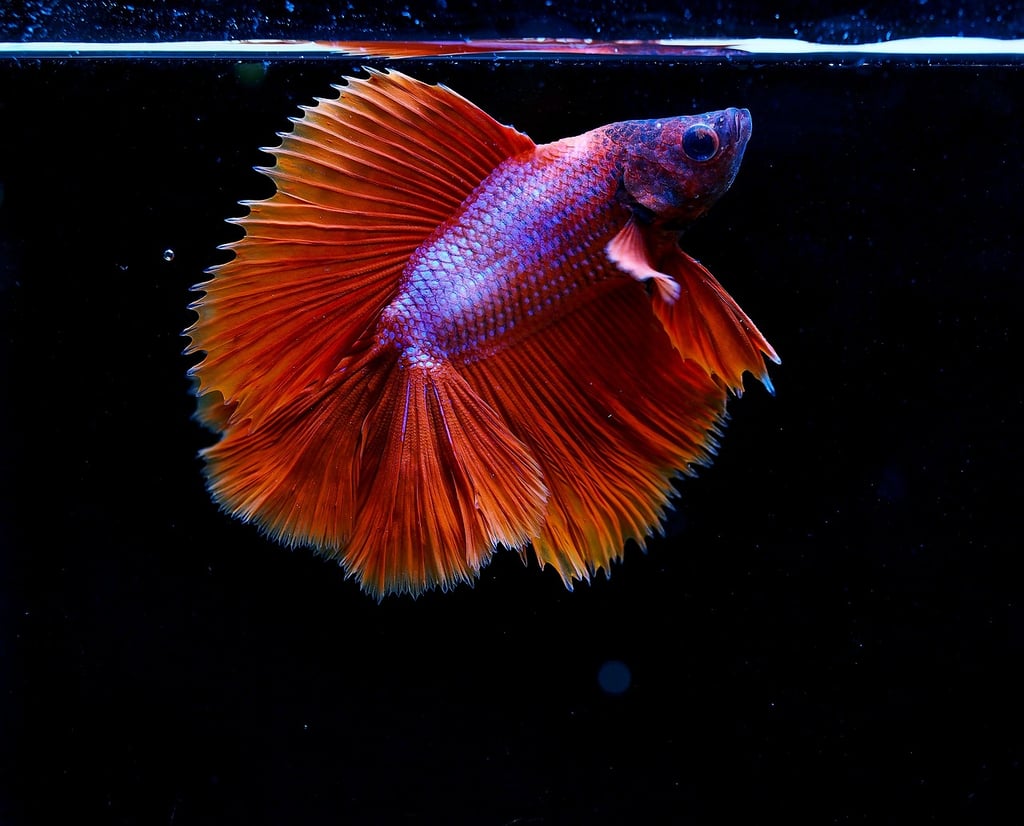
Maintaining a Healthy Diet for Betta Fish
Feeding your betta fish a healthy and varied diet is crucial for their overall health and well-being. In addition to commercially available betta food, occasional treats such as bloodworms or brine shrimp can be offered, but in moderation. It is important not to overfeed your betta fish, as excess food can lead to water quality issues and potential health problems.
Remember, ensuring proper nutrition is essential for keeping your betta fish happy and thriving. Avoid the temptation to substitute goldfish food for your betta's diet and opt for specialized betta food that meets their specific nutritional requirements. By providing a well-balanced diet and following the proper feeding guidelines, you can help your betta fish live a long and healthy life.
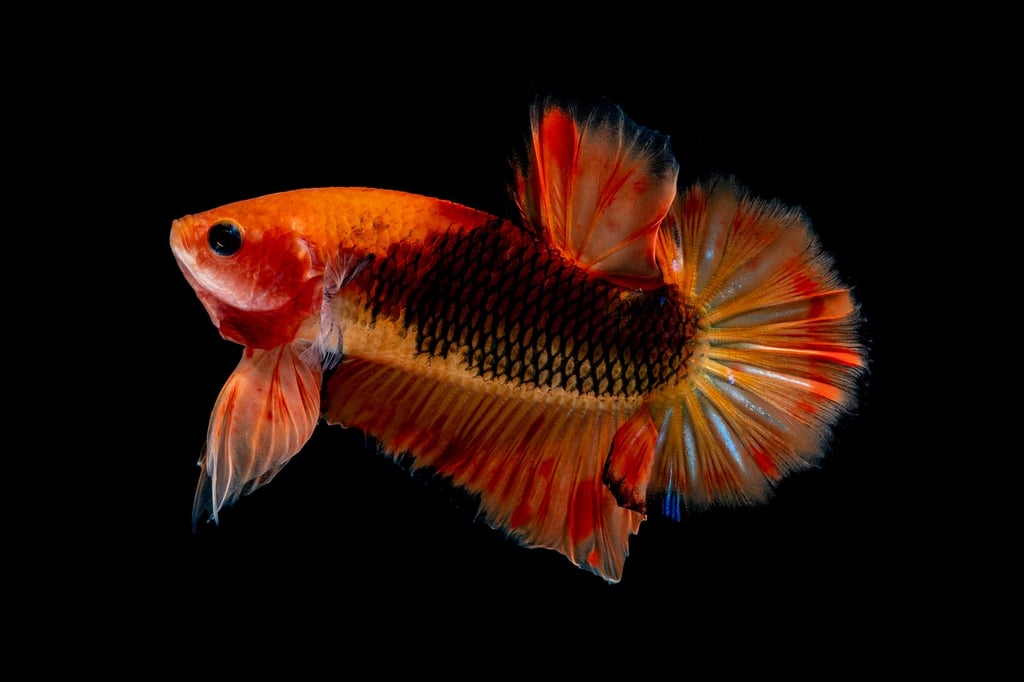
The Risks of Feeding Betta Fish Goldfish Food
While it may be tempting to feed your betta fish goldfish food as a quick and convenient option, it is important to be aware of the potential risks associated with this practice. Betta fish have specific dietary requirements that differ from those of goldfish, and providing them with an improper diet can have detrimental effects on their health and well-being.
- 1. Nutritional Imbalance: Goldfish food is formulated to meet the nutritional needs of goldfish, which have a different metabolism and digestive system compared to betta fish. Goldfish food usually contains lower protein content, higher starch content, and inadequate amounts of essential nutrients that betta fish require to thrive.
- 2. Digestive Issues: Betta fish have a relatively short digestive tract, which is optimized for processing meat-based foods. Goldfish food, on the other hand, often contains a high amount of fillers and plant-based ingredients that can be challenging for betta fish to digest properly. This can lead to digestive issues such as bloating, constipation, and even swim bladder disease.
- 3. Lack of Essential Nutrients: Betta fish require specific nutrients like high-quality proteins, Omega-3 fatty acids, and vitamins to support their vibrant colors, fin development, and overall health. These nutrients are usually found in specialized betta fish food, which is formulated to meet their unique nutritional needs. Feeding them goldfish food may result in a deficiency of these essential nutrients, leading to a decline in their overall health and vitality.
- 4. Potential Contamination: Goldfish and betta fish have different living environments and requirements. Goldfish food can sometimes contain contaminants or bacteria that are harmless for goldfish but can be harmful to betta fish. This can lead to bacterial infections, fin rot, and other health problems.
| Aspect | Betta Fish Food | Goldfish Food |
|---|---|---|
| Protein Content | Higher protein content to support betta fish's carnivorous nature. | Lower protein content. |
| Starch Content | Lower starch content, as betta fish have a limited ability to digest carbohydrates. | Higher starch content, which may lead to digestion issues in betta fish. |
| Essential Nutrients | Contains specialized nutrients like high-quality proteins, Omega-3 fatty acids, and vitamins to support betta fish's unique needs. | May lack sufficient nutrients required for betta fish's optimal health. |
| Contamination Risk | Minimal risk, as specialized betta fish food is often produced under strict quality control measures. | Potential risk of contamination or bacteria that may harm betta fish. |
In conclusion, feeding betta fish goldfish food can pose several risks to their health and well-being.
It is crucial to provide a diet that meets their specific nutritional needs to ensure their optimal health, vibrant colors, and long lifespan.
Choosing high-quality betta fish food that is specifically formulated for their requirements is the best way to ensure their dietary needs are met.
Remember, a well-balanced and appropriate diet is essential for the overall well-being of your betta fish.
Consulting a veterinarian or a knowledgeable pet store professional can provide further guidance on the best feeding practices for your betta fish.
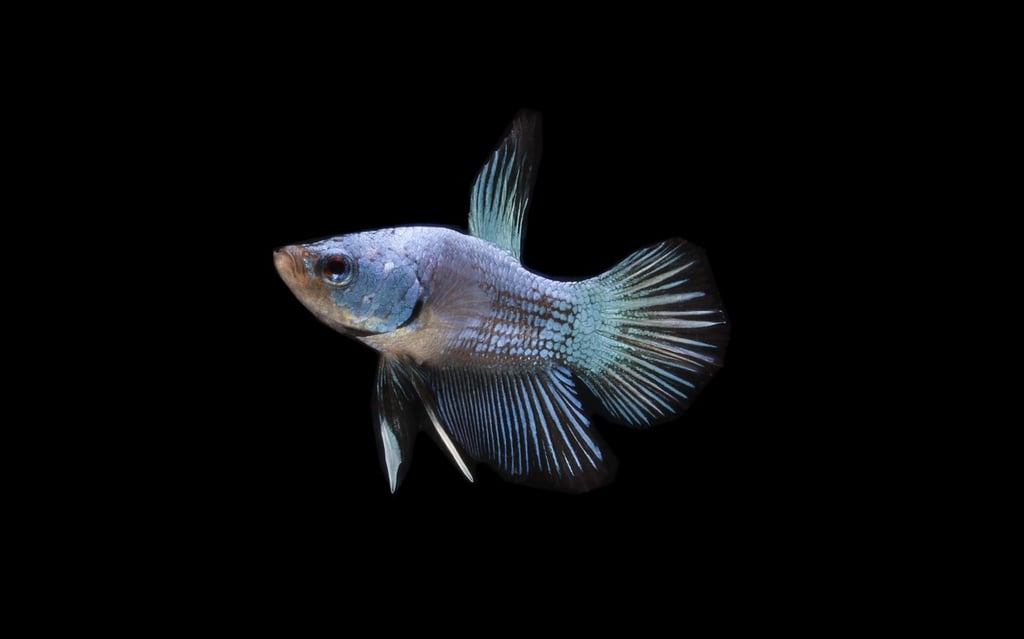
Alternatives for Feeding Betta Fish
While betta fish can survive on a diet of goldfish food in the short term, it is essential to provide them with a nutritionally balanced diet that meets their specific needs. Here are some alternative options to consider for feeding your betta fish:
- Betta Fish Pellets: Betta fish pellets are specially formulated to cater to the dietary requirements of bettas. These pellets usually contain a combination of protein, vitamins, and minerals that promote their overall health and vibrant colors. Look for high-quality betta fish pellets that are free from artificial colors and fillers.
- Frozen or Live Foods: Betta fish also enjoy a varied diet that includes live or frozen foods. Brine shrimp, daphnia, and bloodworms are excellent choices that provide essential nutrients and add excitement to their feeding routine. However, ensure that any live foods you introduce to the tank are free from parasites or bacteria that could harm your betta fish.
- Vegetables: Contrary to popular belief, betta fish can also benefit from small portions of vegetables in their diet. Blanched and finely chopped vegetables such as peas, zucchini, or spinach can provide fiber and additional nutrients. Remember to remove any uneaten pieces after a few minutes to maintain water quality.
- Freeze-Dried Foods: Freeze-dried foods are another convenient option for betta fish owners. They offer the convenience of dried foods while retaining nutritional value. Look for freeze-dried options like bloodworms or brine shrimp that can serve as occasional treats for your betta fish.
It's important to note that while these alternative options can supplement your betta fish's diet, they should not replace their main staple food. Betta fish pellets should still make up the majority of their daily meals to ensure they receive the necessary nutrients for their well-being.
| Feeding Alternative | Description |
|---|---|
| Betta Fish Pellets | Specially formulated pellets that provide a balanced diet for betta fish, containing protein, vitamins, and minerals. |
| Frozen or Live Foods | Live or frozen options such as brine shrimp, daphnia, and bloodworms that offer variety and essential nutrients. |
| Vegetables | Small portions of blanched and chopped vegetables like peas, zucchini, or spinach that provide fiber and additional nutrients. |
| Freeze-Dried Foods | Convenient, dried options like freeze-dried bloodworms or brine shrimp that can serve as occasional treats. |
Remember, maintaining a balanced and varied diet for your betta fish is crucial for their overall health and longevity. By offering alternative options in addition to their staple diet, you can provide them with a nutritionally rich and stimulating feeding experience.
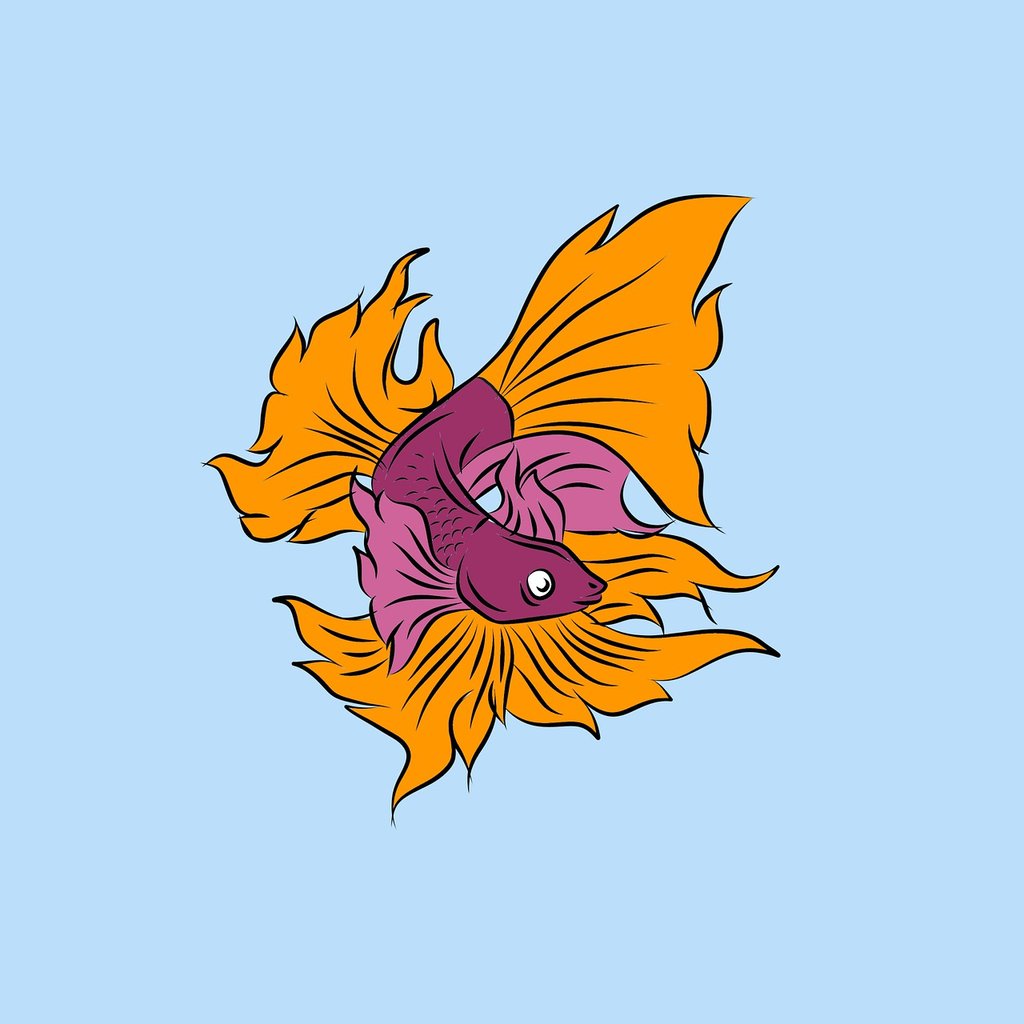
Step-by-Step Guide to Transitioning Betta Fish to a New Diet
Transitioning a betta fish to a new diet requires a gradual process to ensure their digestive system can adjust properly. Here is a step-by-step guide to help you successfully transition your betta fish to a new diet:
- Research and Choose a Suitable Diet: Before starting the transition, it is essential to research and select a suitable diet for your betta fish. Look for high-quality betta fish pellets or flakes that contain a balanced mix of protein, vitamins, and minerals.
- Start with Small Changes: Begin by introducing a small amount of the new food alongside their existing diet. This gradual approach allows the betta fish to become accustomed to the new taste and texture without shocking their system. A good rule of thumb is to start with a 75% old diet and 25% new diet mixture.
- Monitor Your Betta's Response: Observe your betta fish closely to see how they respond to the new food. Some bettas may quickly accept the change, while others might be more hesitant. This monitoring phase helps you assess their willingness to consume the new diet.
- Adjust the Proportions: Over the course of a week, gradually increase the proportion of the new food in their diet while decreasing the old food. For example, you can transition to a 50% old diet and 50% new diet mixture, and then progress to a 25% old diet and 75% new diet mixture.
- Complete Transition: After approximately two weeks, your betta fish should be fully transitioned to the new diet. Their digestive system will have adapted to the new food, ensuring they can receive optimal nutrition for their health and well-being.
- Maintain a Balanced Diet: Once the transition is complete, it is crucial to continue providing a balanced diet for your betta fish. Avoid overfeeding and incorporate a variety of foods, such as freeze-dried or frozen brine shrimp, daphnia, or bloodworms, to maintain their overall health.
Balanced Feeding Schedule:
Establishing a regular feeding schedule is vital to prevent overfeeding or underfeeding your betta fish. A healthy betta fish should be fed once or twice a day, with each feeding session consisting of small portions.
- Divide the daily recommended amount into two feedings.
- Feed your betta fish at the same time every day to establish a routine.
- Avoid overfeeding as it can lead to obesity and various health issues.
- Monitor your fish's appetite and adjust the portion sizes accordingly.
High-Quality Betta Food:
Investing in high-quality betta fish food is essential for providing the necessary nutrients. Look for specialized betta pellets or flakes that offer a well-balanced diet.
Here are some factors to consider while choosing betta fish food:
- Protein-rich: Betta fish require a diet rich in protein, so opt for food with a high protein content.
- Nutrient variety: Look for food that includes a mix of essential nutrients like vitamins, minerals, and amino acids.
- Avoid fillers: Ensure that the food does not have excessive fillers or artificial additives.
Supplementary Diet:
In addition to betta fish pellets or flakes, it is beneficial to include supplementary items in their diet:
- Frozen or live foods: Offer occasional treats like bloodworms, brine shrimp, or daphnia to supplement their diet with added nutrients.
- Variety of vegetables: Give your betta fish blanched and finely chopped veggies like spinach or peas as a source of fiber.
- Avoid feeding them human food, as it can be harmful to their health.
Water Conditions:
Clean, filtered water is essential for the well-being of your betta fish. Poor water quality can significantly impact their appetite and overall health. Follow these guidelines to maintain optimal water conditions:
- Perform regular water changes to ensure cleanliness and prevent the buildup of harmful toxins.
- Monitor the water temperature and maintain it within the recommended range for betta fish.
- Invest in a high-quality water filter to keep the water clean and free from pollutants.
Observation and Adjustments:
Keep a close eye on your betta fish's behavior, appetite, and overall appearance. If you notice any changes or signs of illness, it may indicate a need for adjustments in their diet.
Factors to consider:
- Weight loss or gain
- Decreased activity
- Changes in coloration
- Faded fins or fin rot
Consulting a veterinarian who specializes in fish care can provide expert advice and guidance on adjusting your betta fish's diet to improve their health and vitality.
Feeding a betta fish may seem straightforward, but their nutritional needs are unique compared to other fish. One common question that arises is whether a betta fish can eat goldfish food. This article will provide a comprehensive guide to help you understand the feeding habits of betta fish, explore the compatibility of goldfish food with their diet, highlight the risks involved, and offer alternative feeding options for these vibrant and beautiful aquatic creatures. Additionally, it will provide step-by-step instructions on how to transition betta fish to a new diet and emphasize the importance of maintaining a healthy feeding routine for their overall well-being.
Faqs
-
Can I feed my betta fish the same food as goldfish?
While betta fish and goldfish share some similarities, they have different dietary requirements. Goldfish food typically contains lower protein levels and higher carbohydrate content, which may not meet the nutritional needs of a betta fish. It is best to choose betta-specific food that caters to their unique dietary needs.
-
What are the risks of feeding my betta fish goldfish food?
Feeding betta fish goldfish food can pose several risks. The high carbohydrate content in goldfish food can lead to digestive issues, weight gain, and even obesity in betta fish. Additionally, goldfish food often lacks essential nutrients that betta fish require for vibrant colors and overall health. Regular consumption of goldfish food may weaken the immune system and make them more susceptible to diseases.
-
How can I transition my betta fish to a new diet?
Transitioning your betta fish to a new diet requires patience and a gradual approach. Start by introducing small amounts of the new food alongside their regular diet. Slowly increase the proportion of the new food over several days or weeks, monitoring their response and adjusting accordingly. It is important to monitor their eating habits and ensure they are accepting the new food before completely replacing their old diet.

